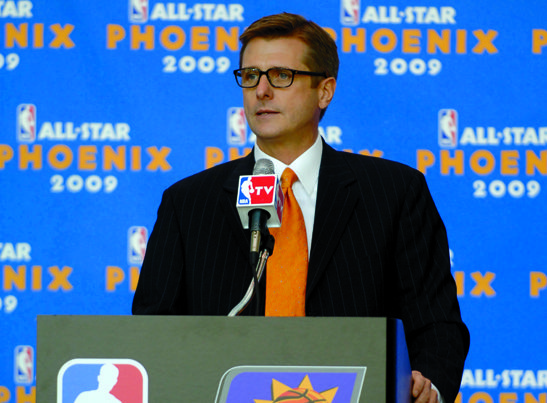Rick Welts
President and Chief Operating Officer, Phoenix Suns
Describe your very first job and what lessons you learned from it.
My very first job was in the exact same industry that I am in now, and the exact same league. I was a ball boy for the Seattle SuperSonics, which I started doing in 1969. I was a team attendant, just like you see ball boys and ball kids running around today doing it, just doing what needed to be done around the locker room and during the games.
I go back to that a lot when I talk to people about what I do, because it’s very rare that anybody gets the opportunity to be in the environment of a professional sports team locker room, and there are dynamics that go on there that actually help me very much in my current job in terms of the relationships between players, the coaching staff, the training staff, the media, and where that interaction happens.
Describe your first job in your industry and what you learned from it.
It was called then the public relations director — it’s now usually called media relations director — of that same team, the Seattle SuperSonics, which I started doing in 1977. That was very valuable to me in that we ended up, the Sonics, in the two years that I had that position going to the NBA finals both years and winning a championship the second year, which was 1979. … It was really a fast education in my first two years in that position to really be the focal point of our league in the championship series both times and to win a championship.
What were your salaries at both of these jobs?
I think with the ball boy job I got $10 a game and two tickets with which my parents became regular attendees of Sonics’ games. My starting salary as public relations director, which started in 1977, was $15,000.
Who is your biggest mentor and what role did they play?
One that everybody knows would be the current commissioner of the NBA, David Stern. … I ended up spending 17 years working directly for him, the first couple in his role as executive vice president and the last 15 as commissioner of the NBA. He truly would be my most important mentor in learning. …
My two others would be my second boss at the Sonics, a guy by the name of Dave Watkins, who was head marketing and public relations person for the Sonics at the time. I really learned the value of how much creativity you could bring to a job and how important communications skills are in business. … (Then) I went into business with a guy who had been our assistant general manager with the Sonics. His name was Bob Walsh. Bob had left the Sonics to start a sports marketing firm in Seattle, and from Bob I learned to value the role personal relationships play in being successful in business …
What advice would you give to a person entering your industry?
In addition to looking for the right organization and the right opportunity, if you can pick a good boss, you’re probably going to learn more and probably advance your career better than you could if that wasn’t the case.
If you weren’t doing this, what would you be doing instead?
I actually wanted to be a journalist or at least be in the journalism industry. When I was in college I was actually in communications school. I was going during the time of Watergate when journalists really were heroes. … I still have great admiration for people who have that as their lives’ work.




